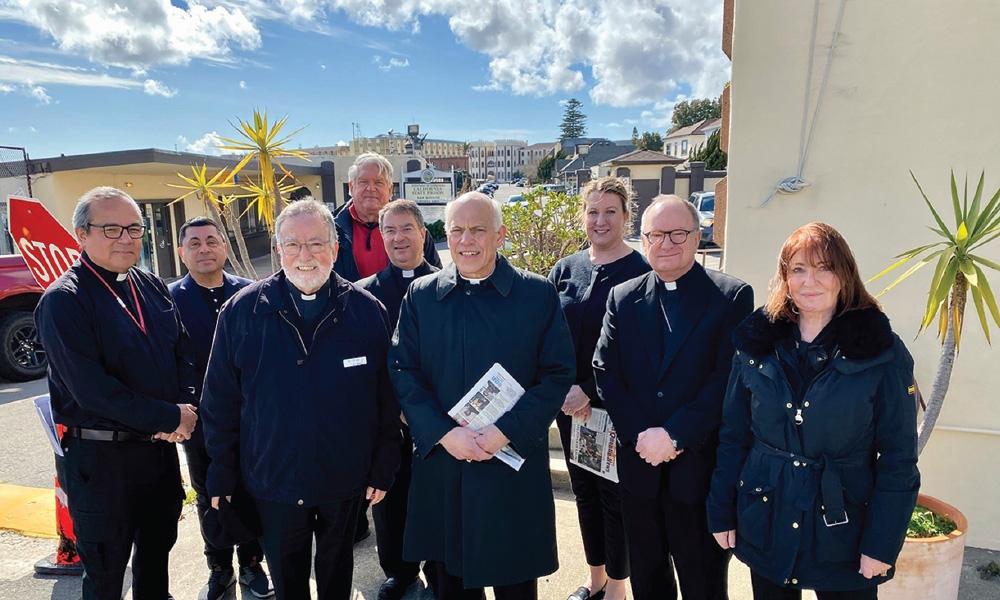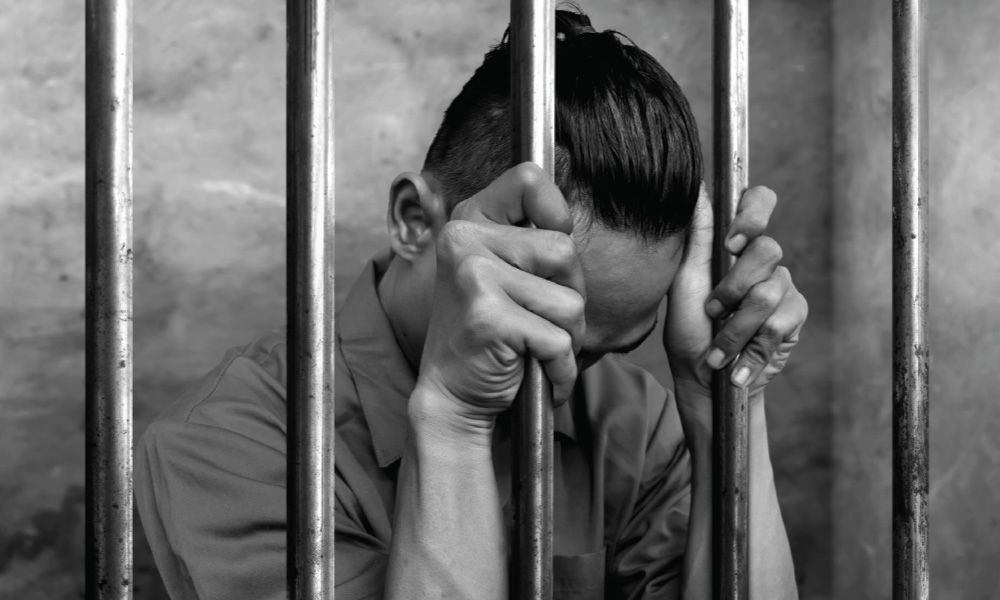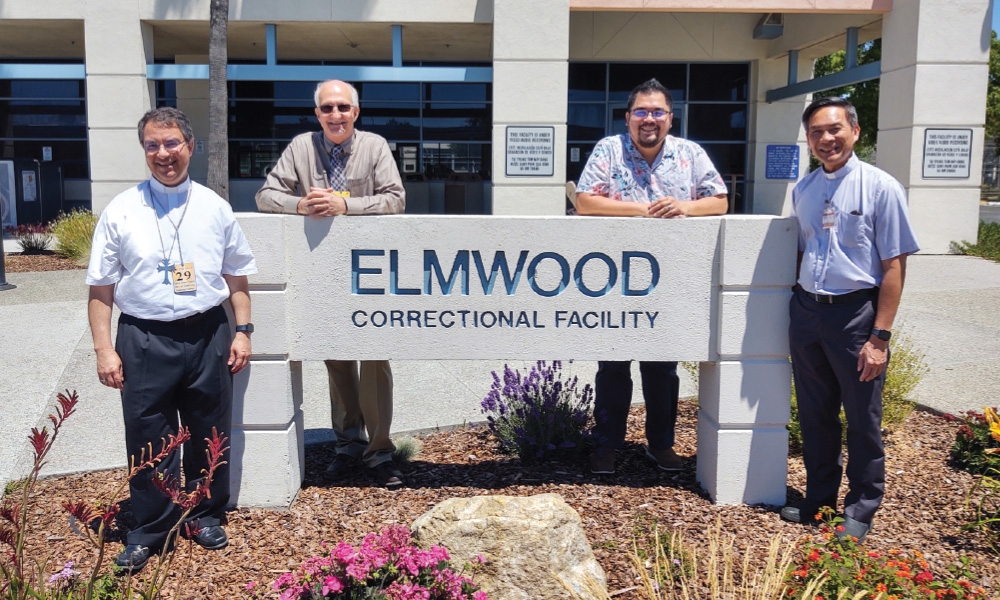
God Walked with Us
Reflection on the California Bishops’ Pastoral Visit to San Quentin State Prison
Reflection on the California Bishops’ Pastoral Visit to San Quentin State Prison
One of the abiding pastoral concerns of the Church is the spiritual welfare of the imprisoned. The Lord directly calls us to this pastoral care in the Gospel: “I was…in prison and you visited me” (Matthew 25:35-36 NABRE).
One of the abiding pastoral concerns of the Church is the spiritual welfare of the imprisoned. The Lord directly calls us to this pastoral care in the Gospel: “I was…in prison and you visited me” (Matthew 25:35-36 NABRE).
In March 2019, Governor Gavin Newsom signed a moratorium on the death penalty. He then ordered the transfer of death row inmates at San Quentin State Prison to other maximum-security prisons in California.
These changes elicited concern from San Quentin inmates themselves, as well as the chaplains who care for their spiritual welfare. It is a little-known fact that San Quentin is one of the few prisons in the state to have a dedicated Catholic chapel. Compelled by pastoral concern, the California Catholic Conference (CCC) arranged for four bishops of California, including myself, to speak and minister to the inmates earlier this year in March. The prison’s Catholic chaplain, Father Manny Chavira, and the warden graciously arranged what can only be described as a grace-filled encounter with those truly on the fringe of society and the Church. In about five hours, we developed a good sense of the culture, issues, fears, and freedoms behind the walls of this infamous prison.
Meeting Our Lady of Guadalupe on the inside
I was deeply moved to listen to one inmate recount his conversion. He shared that he first prayed — and he used this term loosely — to Our Lady of Guadalupe, not knowing exactly who she was or what to say. Never having tried such a thing before, he related the words of his first ‘prayer’ to Mary, and truthfully, I was brought to tears by the sheer humanity and humility of his address to Our Lady: “I am not sure exactly who you are, but I know you are sacred from how people treat you. If you could, would you please help me because I am feeling really lost.” After this, he felt that he heard a voice reply, “You are my son. I love you.” This inspired him to learn about and eventually become a fully initiated Catholic. He found himself reading the Bible, the Catechism of the Catholic Church, and about the lives of the saints. He now ministers to his fellow inmates.
A Benedictine on Death Row
Not all men respond to a death sentence with conversion, and we did encounter some who vocally and openly mocked and rejected God. In contrast, we met one inmate, a convicted murderer, whose conversion and repentance had been dramatic. While on death row, he had developed such a thirst for God in prison that he had asked for and was accepted by a Benedictine monastery, who permitted him to make temporary vows from San Quentin. Following the governor’s moratorium, he now lives as a Benedictine without fear of being executed.
Disparate Settings for Grace
As we walked down the narrow hallway, we could hear the yelling, the cursing, and inmates yelling to each other from their private cells, which do not allow for visual contact. This was part of the cold, harsh reality of prison life and the culture of San Quentin. The clanking of steel rang out shrill as the guards opened and closed gates. This permeating sound through the chilly air of the old cinder block building still rings in my consciousness. It is not a place easily forgotten.
Father Manny showed us the Catholic chapel, which is only the width of a hallway with a few benches and bars that separate the presiding priest from the inmates. A stabbing had occurred there a month prior to our visit, and the incident still haunted him. Yet even in these disparate settings, grace still finds a way, and miracles happen. For instance, we learned that another inmate’s conviction had recently been overturned. He had been wrongly sentenced for years, awaiting execution on death row. He would soon be reunited with his family. His story highlights the problematic nature of the penal system, which does make lethal errors, which Pope Francis has repeatedly cited as a reason for abolishing the death penalty altogether.
God walked with us
When any of us performs a corporal work of mercy through the Holy Spirit, it is Christ who ministers and the ministers themselves are transformed. We departed with a better understanding of the spiritual challenges and opportunities for the men on death row and the part of the general population with whom two bishops held small group discussions while the other two heard confessions. When we exited the last battery of checks, it was striking that we could freely breathe the bay air, see the water, and enjoy the warm sun. We prayed that our visit had brought grace to the men, and we all acknowledged that God had walked with us during our time there.


